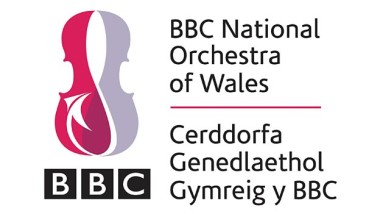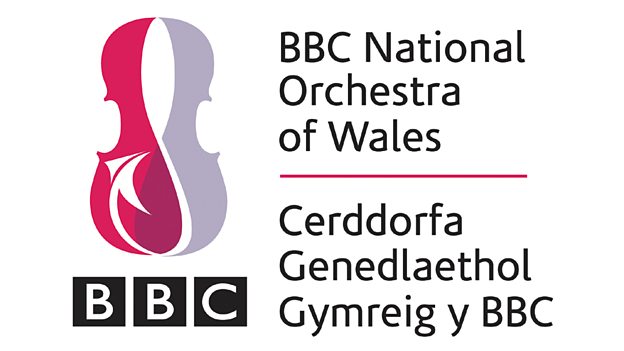
 United Kingdom Shostakovich, Beethoven, Mosolov: Igor Levit (piano), BBC National Orchestra of Wales / Thomas Søndergård (conductor). St David’s Hall, Cardiff, 12.10.2017. (PCG)
United Kingdom Shostakovich, Beethoven, Mosolov: Igor Levit (piano), BBC National Orchestra of Wales / Thomas Søndergård (conductor). St David’s Hall, Cardiff, 12.10.2017. (PCG)
Mosolov – Iron Foundry, Op.19
Beethoven – Piano Concerto No. 5 in E flat, Op.73 “Emperor”
Shostakovich – Symphony No. 12 in D minor “The Year 1917”
For this opening concert in St David’s Hall for their 2017-18 season, the BBC National Orchestra of Wales made their first contribution to the series of works being mounted in Cardiff to commemorate the centenary of the Russian Revolution. While Welsh National Opera have been mounting productions of three works set firmly in the Tsarist era, the BBC programme here contained two works which showed a decidedly contrasting approach to the notion of socialist realism, the ideological basis for music written in Russia during the Soviet period.
The first of these was Mosolov’s Iron Foundry, the sole surviving movement from a four-movement ballet suite entitled Steel. Although this was rapturously received at its first 1927 performances in Russia and elsewhere, Mosolov fell foul of the Stalinist regime, possibly because he had written to the dictator in 1932 complaining about lack of performances. Arrested in 1938 for “counter-revolutionary tendencies”, he spent a year in a forced labour camp. His works after this horrific experience not surprisingly toed the party line faithfully with such ear-catching titles as Symphonic Pictures from the life of the Kuban Cossack Collective Farmers. But the brief Iron Foundry which opened this programme was decidedly in the forefront of European music during that period; although works glorifying the results of engineering were being written elsewhere (Honegger’s Pacific 231 enjoyed a considerable vogue), most of these hymns to industrialisation were Russian. Shostakovich’s The Bolt and Prokofiev’s Pas d’acier were among the most prominent ballets written at this time. Actually Iron Foundry is great fun, especially in the concluding pages, with their insistent rhythms pounded out on an anvil and a steel sheet. The visual element (with the horns standing to deliver their strenuous passages) was not stinted either. Much of the rest of the material, with its repeated ostinato phrases, and its accretion of layer upon layer of texture, anticipated a bizarre cross between minimalism and Carl Orff. The audience thoroughly enjoyed it.
After this rumpus, the Beethoven Emperor Concerto was always going to sound relatively small-scale. Igor Levitt delivered a performance full of subtlety and nuance, without attempting to challenge the barnstorming heights that we sometimes hear in this piece. Indeed, subtlety was the keynote in his delivery. It made this listener realise just how often Beethoven marked passages to be played leggiero. Some of Levitt’s delicately touched phrases were absolutely enchanting, on the very limits of audibility. I wondered how well some of these would have penetrated to the further reaches of the hall, where indeed some restless coughers made their presence felt during the slow movement. But even so the louder passages had plenty of bite, and the blazing contrast on more than one occasion brought a breath-catching sense of discovery. The concert was being broadcast live on BBC Radio 3. I suspect that some of this will have been less evident in the microphoned sound.
Shostakovich’s symphony commemorating the Russian Revolution had, of course, no problems with audibility. In this performance, Søndergård was clearly concerned to present the score as a “real” symphony rather than as an extended tone-poem with elements of a film score. One noted the reminiscences of earlier Shostakovich symphonies—not only the expected Fifth and Eleventh, but also the manic scherzo of the Tenth where the supposed depiction of Stalin’s madness entered into the composer’s depiction of “Revolutionary Petrograd”. The second movement tended to portray the loneliness and monotony of Lenin’s exile in Razliv rather too literally (despite some tender woodwind playing); but the scherzo and finale, complete with two triangle players to add an electric glitter to the final bars, had all the sense of overwhelming overkill that Shostakovich’s incredibly noisy score so trenchantly demands. We are told that the party commissars in 1961 thoroughly enjoyed the work (did they not feel the barbarous force with which the composer invested “The Dawn of Humanity”, quite apart from the use of the minor key?) but that critics both in Russia and elsewhere were less impressed. I think the latter too may have been wrong in their too-easy assumption that Shostakovich was nailing his colours to the Communist Party mast: if one regards the score as an “absolute” symphony, the alleged programme becomes almost irrelevant, as it is for example in the Tenth, about whose quality doubts have never been raised. Perhaps we need to hear more often this relatively neglected member of the Shostakovich symphonic canon.
The end of the symphony might have been regarded as sufficiently blistering to bring this concert to an end, but Søndergård then announced that the orchestra would play an encore. That was especially welcome when the chosen score was played as pointedly and infectiously as it was here. But Søndergård has fallen into the bad habit of not actually identifying the music being played (I have complained many times in the past about this annoying failing in a whole raft of different performers). Liadov’s Baba Yaga is not such a familiar score in the concert hall (or on record) that it can dispense with such an introduction —although it should be, since it is one of the composer’s most delightful miniatures. As it was, the audience was puzzled rather than enthusiastic. Presumably Nicola Heywood Thomas will have enlightened radio listeners.
All of the items here will repay repeated listening, and as usual the live broadcast will continue to be available on the BBC iPlayer for a further month. The programme notes, especially those by the informative Andrew Huth, were excellent. I was saddened to learn from the introduction by Michael Garvey of the death in August of the orchestra’s personable piccolo player Eva Stewart, whose performances I have noted in past reviews for this site with both affection and admiration.
Paul Corfield Godfrey
For more about the BBC NOW click here.

I agree Paul. I have banged on for years about soloists and conductors not announcing their encores. It’s such a little thing but would make a big difference.
Eva Stewart will be much missed. She was a delightful lady, a popular member of the orchestra and a world class musician. Hopefully the BBCNOW will dedicate a concert to her memory at some future date.